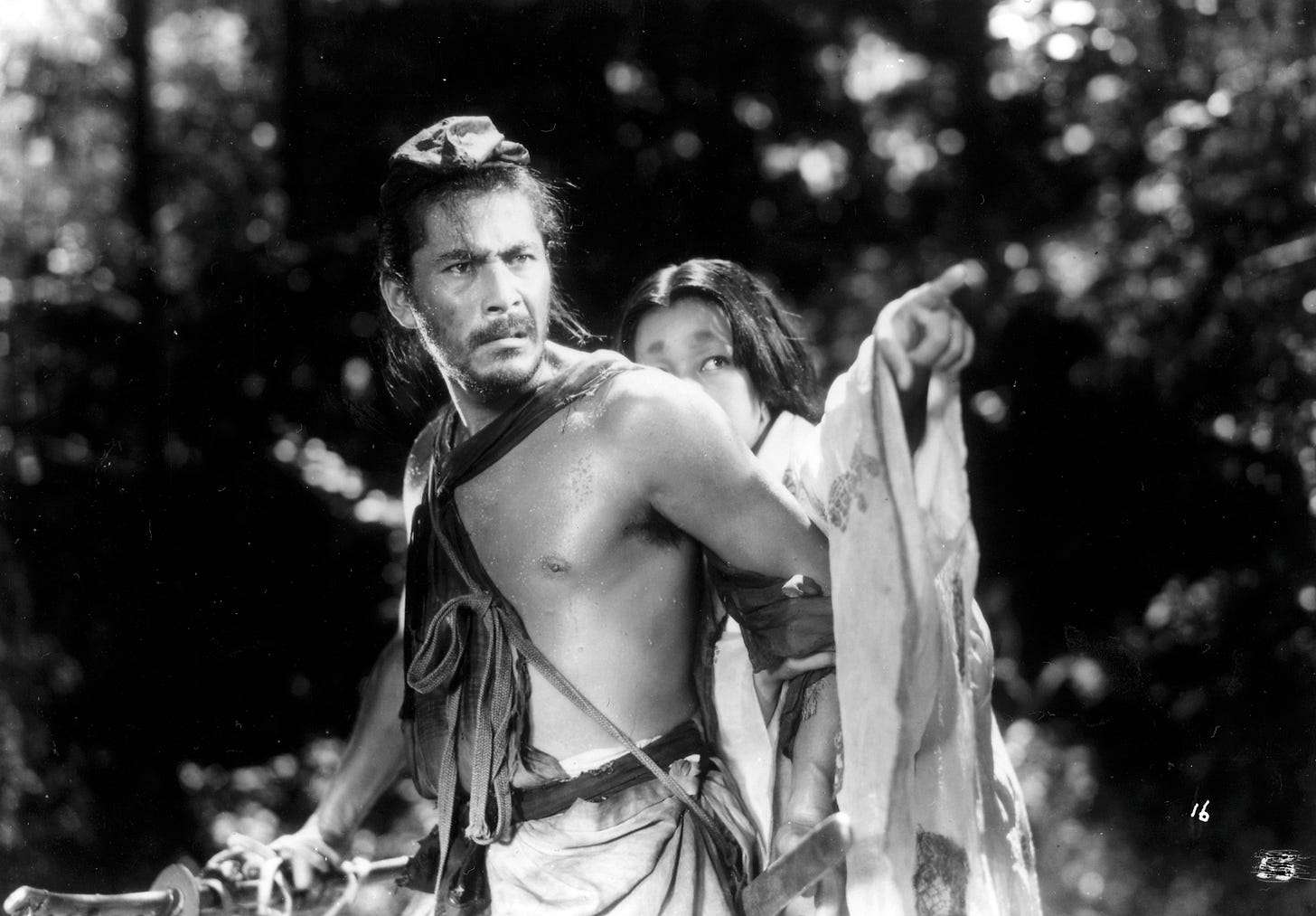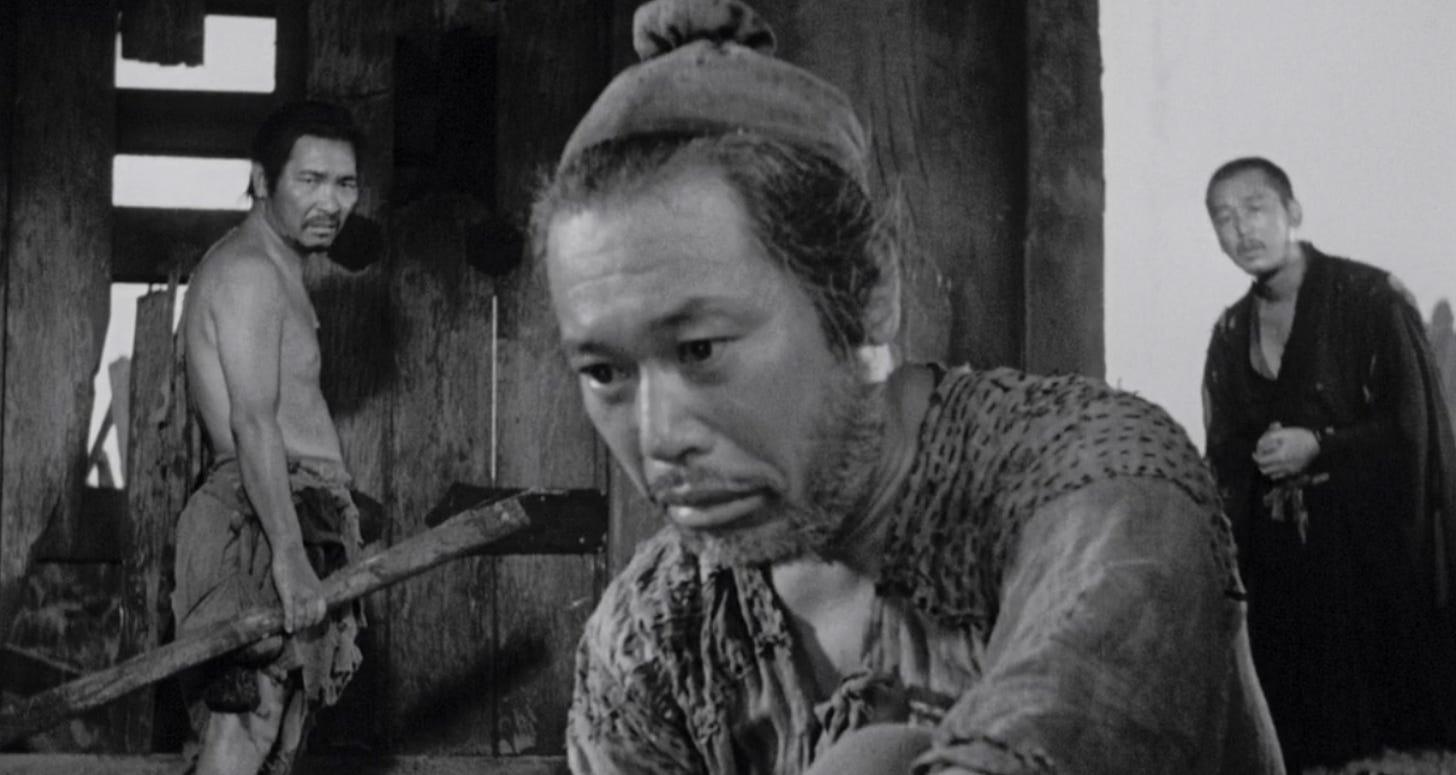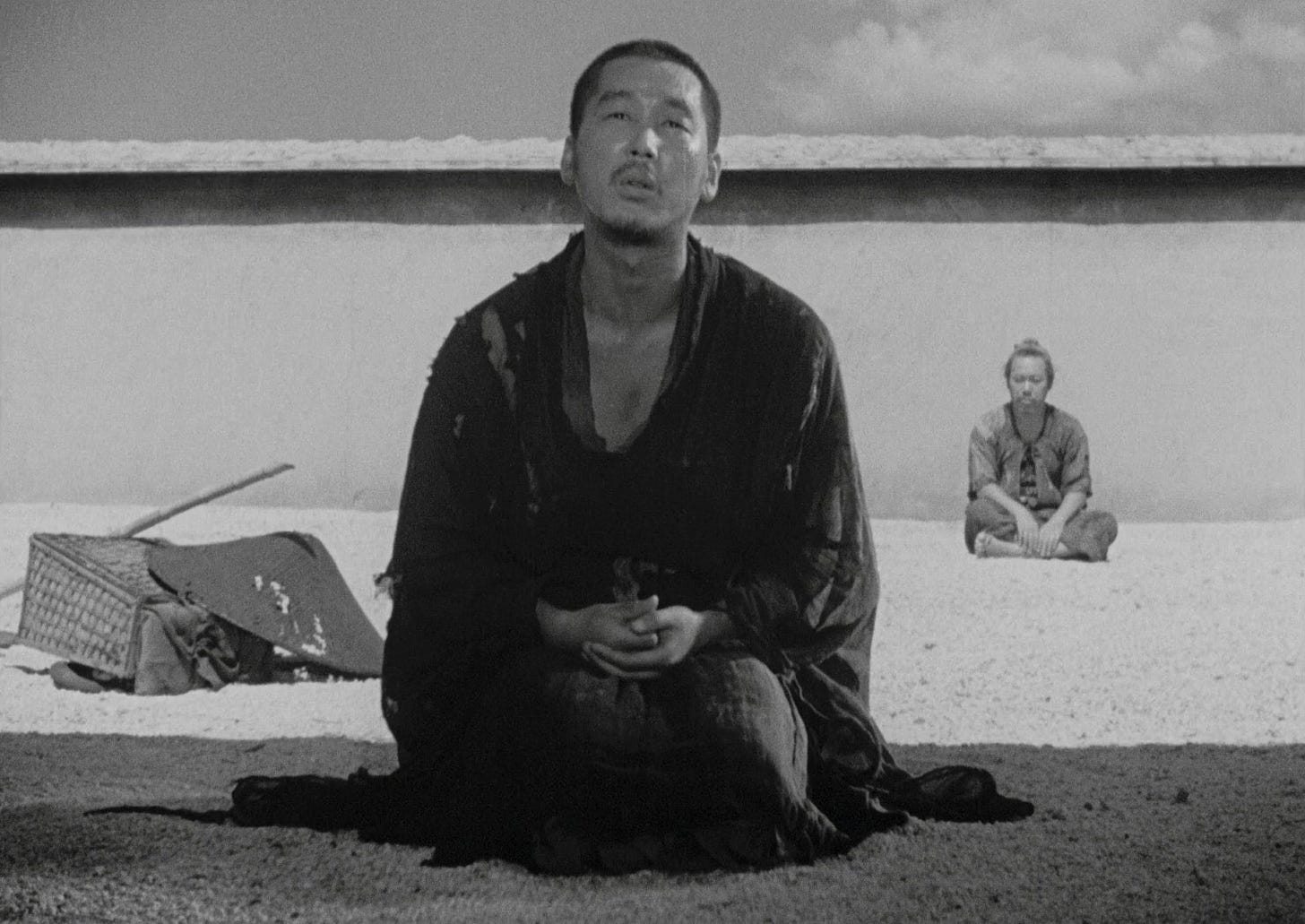'They lie, even to themselves'
#40 — 'Rashomon'
I’ve seen plenty of movies like Rashomon—enough of them, in fact, that its status as a template-setting film didn’t leave much room for a surprise upon my first viewing.
You, too, know Rashomon even if you haven’t seen it exactly. A horrible crime is committed, and there is guilt to be assigned. A series of eyewitnesses recount the events in pursuit of the truth (or, more accurately, blame), and as each person tells their version of the story, the picture gets more and more murky.
Some of my very favorite films use the Rashomon template to great effect. The diptych or triptych or kaleidoscopic tack to storytelling often makes the story itself richer. It reminds you of our precarious relationship with any so-called fact. It also allows you to imagine how many different versions of any story there might be—a subliminal entryway of sorts in to the act of criticism itself.
What makes this kind of film oft-successful is its constraints. The plot is, by its nature, less propulsive and, so, less stuffed with MacGuffins and any other devices meant to deliver you to a conclusion. There is more time to luxuriate in the characters and the themes because you are spending less time keeping up.
Rashomon, besides being the originator of this type of film, is perhaps the most extreme example of working within such deliberately narrow confines. Its minuscule budget limited director Akira Kurosawa and the rest of his crew to just three sets—the gate where the story is told and retold, the forest where the action actually takes place, and the police courtyard where the accused and the eyewitnesses are interrogated. That, in turn, gives the film a laser focus—a maximal return on its spartan trappings. And so the bandit Tajomaru, played by Kurosawa’s frequent muse Toshiro Mifune, slices his way through thick brush and bamboo and includes us in the inquiry that will follow.
“The more I hear,” says one of the commoners who is at the gate hearing this story told and retold, “the more confused I get.”
This sentiment is the classic textual reading of the Rashomon effect. Truth, if not exactly subjective, is always filtered by our experiences, motivations, and cultural beliefs. Certainly, this is true of the confused actions of Masago, the samurai’s wife. We wouldn’t expect her to behave that way if the same sequence of events occurred in the West in the 21st century—the norms of today being so radically different from feudal Japan.
Those filters obscure the truth by their very nature, and so many of the successive works to Rashomon fixate on this distortion. Anatomy of a Fall and The Last Duel are two of my favorite films of the last half-decade. Both crib extensively from Rashomon (in the best possible way), and both marvel at the deep frustration of realizing what we can’t really know.
Where Rashomon is different is in its focus on what the very concept of truth—and our pursuit of it—says about us. Kurosawa’s script is quite explicit in this regard. Our version of events—our truth—is an inherently selfish act.
“If you’re not selfish, you can’t survive,” says the commoner toward the end of the film. ‘
In the shabby, soaked ruins at the gate—and indeed in a devastated post-World War II Japan—survival can often seem like the only thing worth achieving.
After all, as the priest says at the beginning of the film: “A human life is truly as frail and fleeting as the morning dew.”
If we’re to learn anything from Rashomon, it is not the dorm-room wisdom that the truth is unknowable. It is, instead, that “telling our truth”—one that is exclusively indexed on the kind of self-justification that will merely help us live with ourselves instead of transcend that state—is a road to hell. Just look, after all, at the crazed, animalistic eyes of Mifune’s bandit, and consider what that kind of truth does to your humanity.
Naturally, it is the character of the priest who is there to remind us of our species’ higher calling—or at least its higher potential.
“I believe in men,” he says. “I don’t want this place to be hell.”
So must we all, lest our planet turn in to a hell of our own making.





